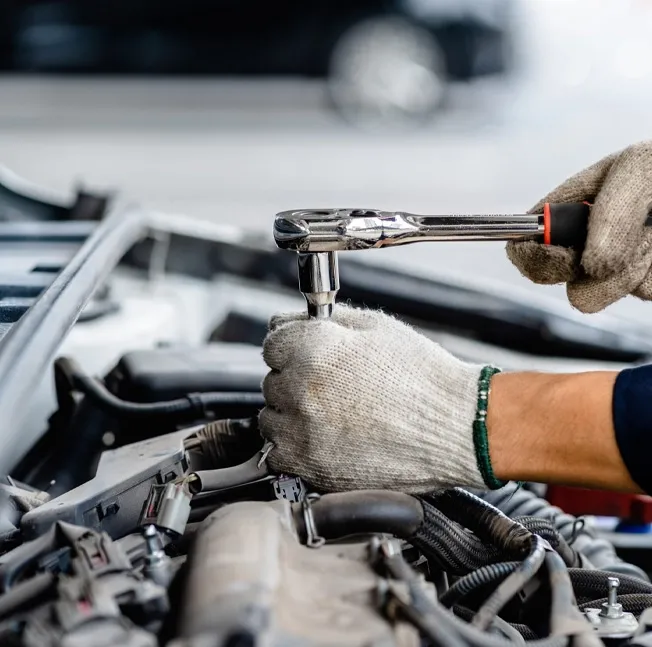Dec . 03, 2024 17:00 Back to list
high pressure oil seals
Understanding High Pressure Oil Seals An Essential Component in Fluid Control Systems
High pressure oil seals are critical components in various mechanical systems that require the containment and control of fluids under high pressure conditions. These seals are designed to provide a reliable barrier against oil leakage while ensuring optimal performance in demanding environments. The importance of high pressure oil seals cannot be overstated, as they are integral to the functionality, efficiency, and longevity of numerous machines, from automotive engines to industrial machinery.
What Are High Pressure Oil Seals?
High pressure oil seals, often referred to as rotary seals or shaft seals, are devices that prevent the escape of lubricants and protect the interior components of machinery from external contaminants. They are typically made from a variety of materials, including rubber, elastomers, and thermoplastic compounds, depending on the specific application requirements and the nature of the fluids involved.
These seals are engineered to withstand high pressure conditions, often exceeding several hundred psi (pounds per square inch). Their primary function is to retain lubricant within the system while preventing the ingress of dirt, dust, and moisture, which could compromise the integrity of the system and lead to premature wear or failure.
Applications of High Pressure Oil Seals
High pressure oil seals find extensive applications across multiple industries, including automotive, aerospace, manufacturing, and oil and gas. In automotive engines, for example, oil seals protect critical components such as crankshafts and camshafts from oil leakage. This is crucial not only for maintaining pressure but also for preventing engine oil from contaminating other parts of the vehicle.
In the aerospace industry, high pressure oil seals are used in hydraulic systems and actuators where efficient fluid control is vital for the safety and performance of aircraft. Similarly, in the oil and gas sector, these seals are essential for equipment that operates under extreme conditions, including high pressure and aggressive fluids found in drilling operations.
Key Characteristics of High Pressure Oil Seals
When selecting high pressure oil seals for specific applications, several factors must be considered
1. Material Composition The choice of material affects the seal's resistance to chemicals, temperature fluctuations, and mechanical wear. Common materials used for high pressure oil seals include nitrile rubber (NBR), fluorocarbon (FKM), and silicone, each selected based on the application's specific conditions.
2. Temperature Range High pressure seals must perform effectively in a range of temperatures. Understanding the operational temperature extremes helps in selecting the appropriate material and seal design.
high pressure oil seals

3. Pressure Rating Different seals are designed to handle varying pressure levels. It's critical to choose a seal that meets or exceeds the pressure requirements of the application to prevent leaks and failures.
4. Size and Design High pressure oil seals are available in various sizes and shapes. The design must fit the specific configuration of the machinery, ensuring a tight fit and effective sealing capability.
5. Installation Requirements Proper installation is crucial to the performance of high pressure oil seals. Manufacturers often provide guidelines to ensure correct fitting and alignment, which significantly affects seal longevity and functionality.
Benefits of High Pressure Oil Seals
High pressure oil seals offer several benefits to industrial applications, including
- Leak Prevention By efficiently containing fluids within high pressure environments, these seals reduce the risk of leaks, thereby minimizing maintenance needs and operational costs.
- Contaminant Exclusion Preventing the entry of foreign particles prolongs equipment life and reduces premature wear, contributing to smoother operations and less downtime.
- Improved Equipment Efficiency Maintaining optimal fluid pressure and conditions enhances the overall efficiency and performance of machinery, leading to better productivity and reduced energy consumption.
- Cost-Effectiveness Investing in high quality oil seals may initially appear costly, but the reduction in maintenance and repair costs, along with increased operational reliability, leads to significant savings over time.
Conclusion
High pressure oil seals are indispensable components in many machinery and systems that operate under stringent conditions. Their ability to maintain fluid integrity, prevent contaminants, and enhance overall efficiency makes them vital for the longevity and reliability of mechanical systems. As industries continue to evolve and demand higher performance, the design and technology behind high pressure oil seals will also advance, ensuring they meet the challenges of modern applications. Understanding and selecting the right oil seal is essential for any engineering professional looking to optimize system performance and extend equipment lifespan.
-
Wiper Oil Seal: Our Commitment to Clean Hydraulics
NewsAug.13,2025
-
Hydraulic Oil Seal for Self Discharging Cars
NewsAug.13,2025
-
Hub Oil Seal for Agricultural Tractor Hubs
NewsAug.13,2025
-
Skeleton Oil Seal with NBR Material
NewsAug.13,2025
-
Rotary Lip Seal for High Pressure Applications
NewsAug.13,2025
-
Cylinder Seal Kits Our Legacy of Hydraulic Trust
NewsAug.13,2025
-
Unlocking the Potential of Hydraulic Systems with Essential Sealing Solutions
NewsAug.06,2025
Products categories
















